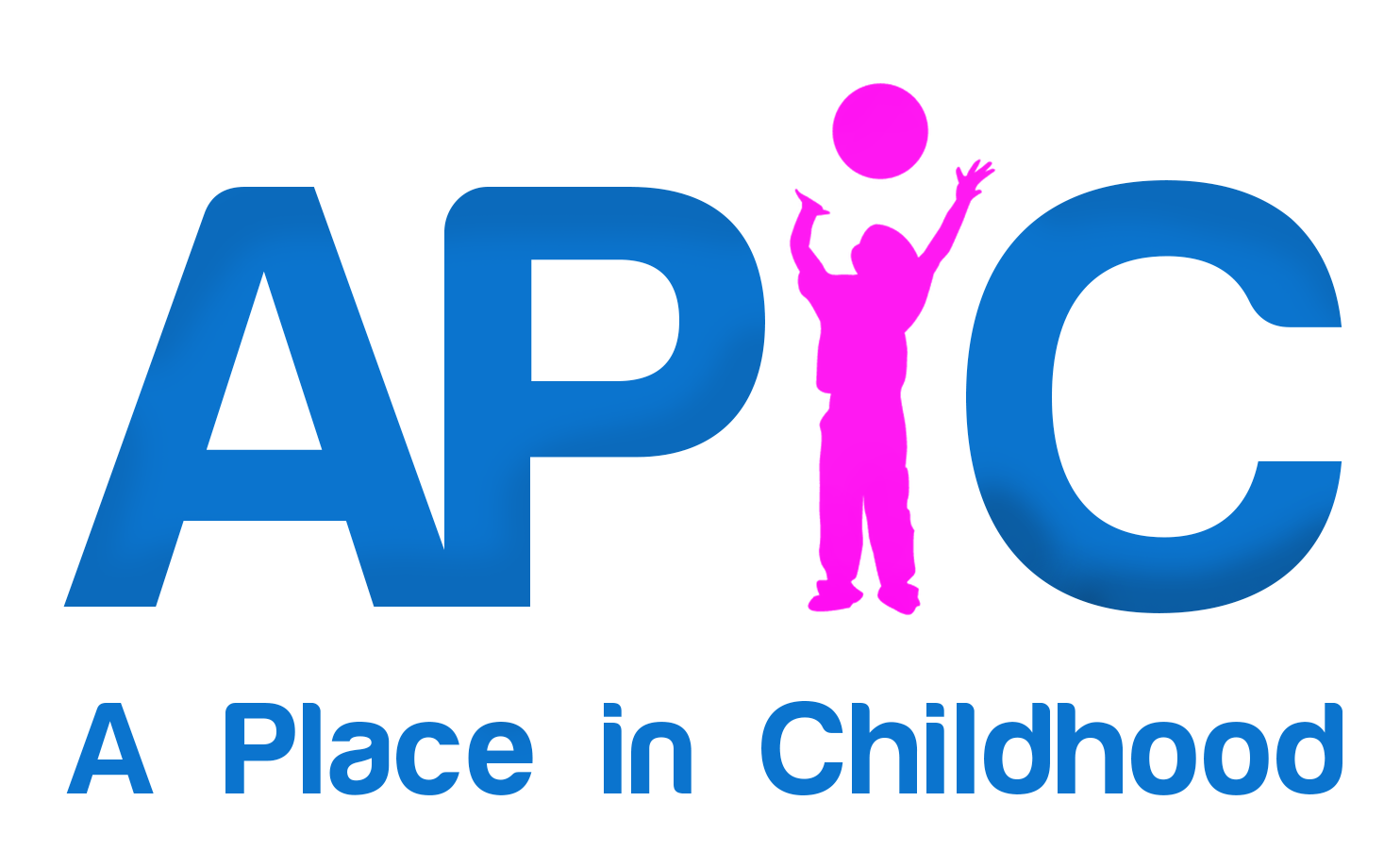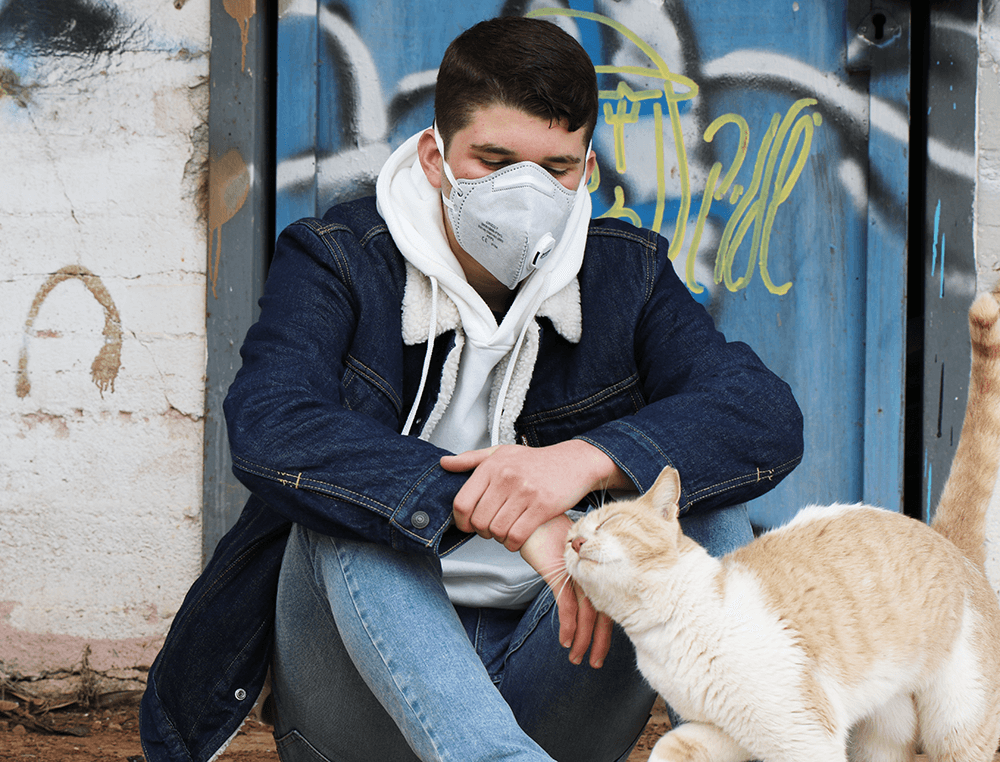
Covid-19 Project with Scottish Children and Young People
This blog, our third about our Covid-19 Project, details outcomes from Workshop 2. Taking the 5 big changes identified in Workshop 1 as a framework, teams discussed the Covid-19 challenges for Scottish Children and Young People. They prioritised those areas where they felt changes would be most beneficial for them.
The Project, self-funded by APiC, addresses the absence of young Scots’ rightful participation in the Covid-19 crisis response. It involves teams from Aberdeen, Edinburgh, Glasgow, and (Rural) Stirlingshire and Falkirk, each with 4-6 boys and girls, aged 10-16 years. Leith Community Crops in Pots, the Children’s Parliament Imagining Aberdeen programme, Denny High School, Northfield Academy and Manor Park Primary School helped us with the recruitment.
The Workshops (3 to-date) use a collaborative online environment which integrates video conferencing and a digital workspace. The project teams led and facilitated all discussion activities. The consensual outcomes from each Workshop, as agreed by all teams, then determined the agenda for the next.
Workshop 2: Covid-19 Challenges for Scottish Children and Young People
Workshop 2 took place on Saturday 17th May. The top priority emerging from the discussion was the challenge(s) of Remote Schooling, which provided the focus for Workshop 3. We will reveal these in detail, and the remedies proposed by the young consultants, in our next blog.
As regards the other 4 big changes, the Covid-19 challenges for Scottish children and young people were agreed to be as follows (in rough order of priority):
Our freedom to go outdoors and travel
The big challenges:
- Not being able to go where I want, with who I want
- Being unable to do fun outdoor stuff I enjoy
- Not being able to go on holidays and outings
- Being unable to eat out
- Having to find interesting stuff to do without being able to leave my home or garden
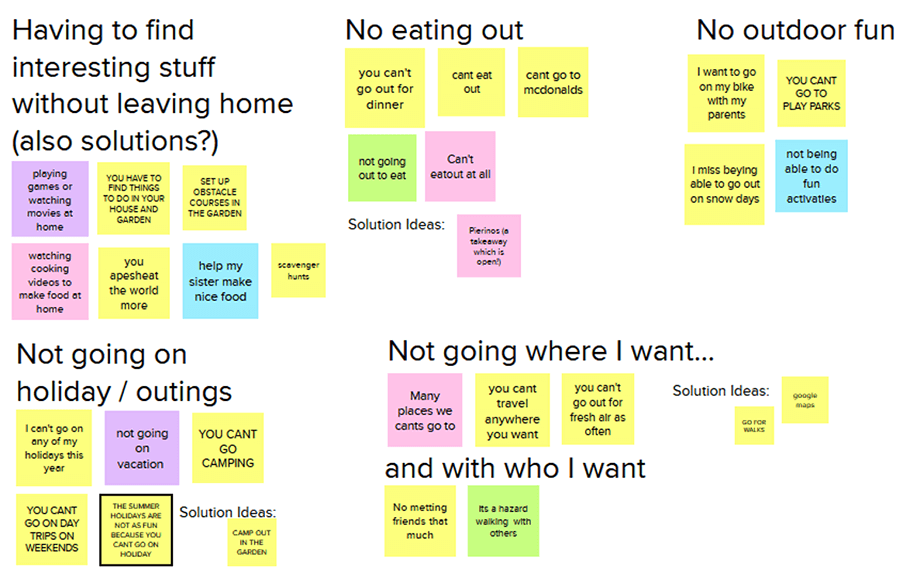
What we do (and can’t do) in our free time
The big challenges:
- An overload of Screen Time!: Playing ‘social’ games with friends; watching TV and YouTube; video-calling friends; not a lot else to do at home other than board games; and all of this on top of spending all day (and more) online for school!
- Not staying up too late
- Not enough sport and exercise, and other outdoor activities
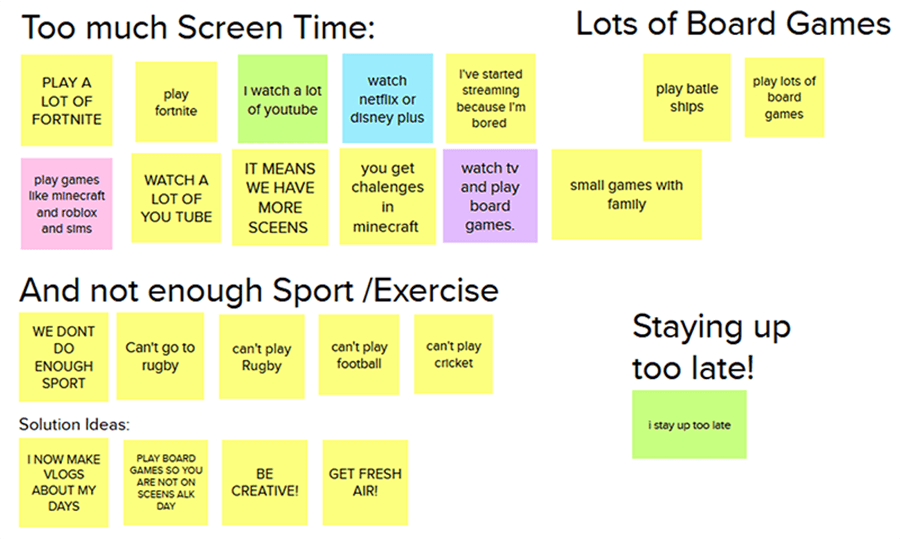
Seeing and doing things together face-to-face with our friends, and family members who don’t live at home
The big challenges:
- Not being able to see friends and family (who I don’t live with) in person and do things together
- Only being able to meet friends online
- Only being able to interact with the people I live with
- Social distancing rules
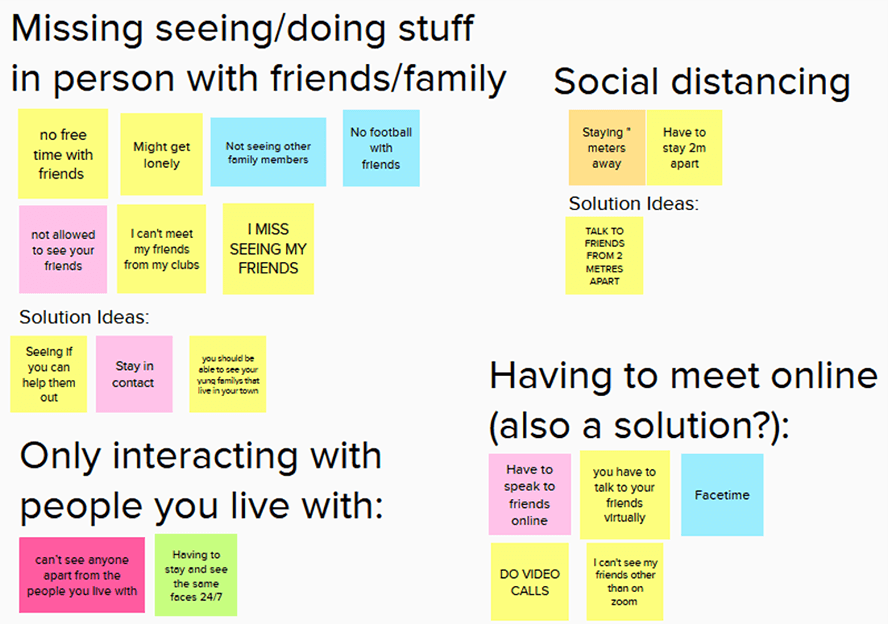
Literal requirements of the Covid-19 response and associated difficulties/weirdness
The big challenges:
- Washing my hands (and remembering not to touch my face!)
- Going shopping
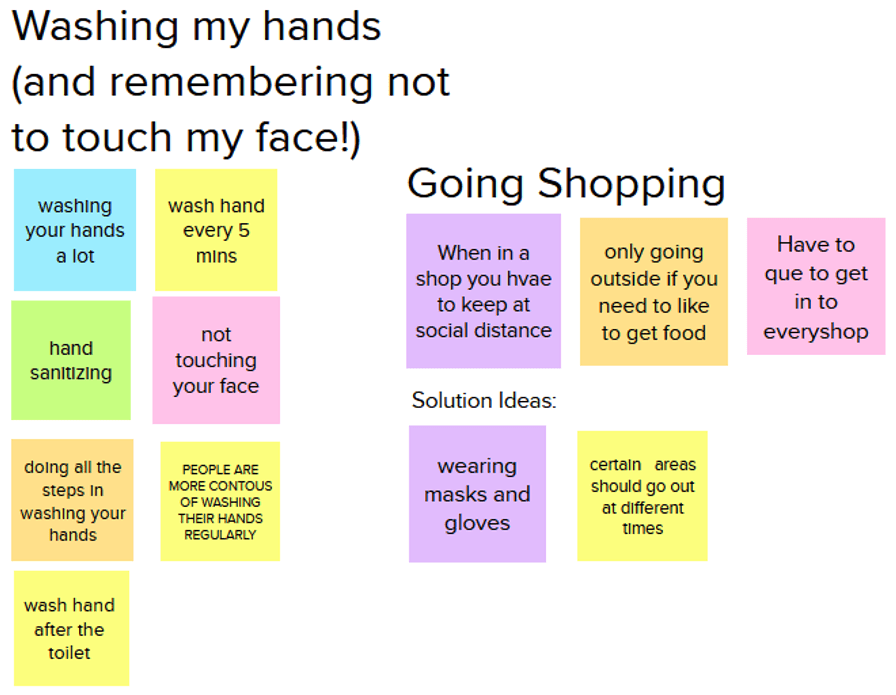
Outdoor Access
Other than Remote Schooling, which we’ll cover next week, outdoor access was a key priority agreed to link the above challenges. For many young people, particularly in urban areas, the range of possibilities for their permitted time outdoors was extremely limited. This wasn’t enough time to use quality greenspace or enable ‘social-distanced’ interaction with friends and family members relatively close. For those with small or no garden, and no or barred parks nearby, this offered negligible options for outdoor play, interaction and exercise.
The absence of these things essential to health and wellbeing was frustrating, depressing and isolating.
Small changes to the Covid-19 rules which might hugely benefit young people, include:
- Making allowances to time permitted outside based on how long it takes to access quality greenspaces, and / or connect outdoors with important friends and family member in the neighbourhood
- Having days or times where local greenspaces are reserved for young people only, allowing them to meet friends for social-distanced’ activities, without having to worry about adults and dogs who may not respect the rules. One idea was to open golf courses for use by young people on some days, as these are sometimes the only quality greenspace in urban areas (and the one sport which they identified might be played under social distancing)
- Enable and support more outdoor learning, which will be covered in more detail next week.
What’s next?
We will set out he outcomes from our third Workshop in our next blog. This focused mainly on the ways Remote Schooling, and transition back into (new) normal life and schooling might be made easier.
Having demonstrated the importance of enabling young people’s voices at this time, APiC is now seeking to secure funding to support, progress and hopefully expand this tracking project. A full research report will also follow in the coming weeks.
- If you are interested in funding the continuation of this unique and important project, please email us, we’d love to hear from you.
- Like APiC, Children’s Parliament are also keen to share how the Coronavirus Lockdown is experienced by children. Created by the Members of Children’s Parliament, the Corona Times Journal helps adults to understand the impact that the coronavirus is having on children’s lives. They are also inviting children from the ages of 8-14 to take part in a national wellbeing survey.
